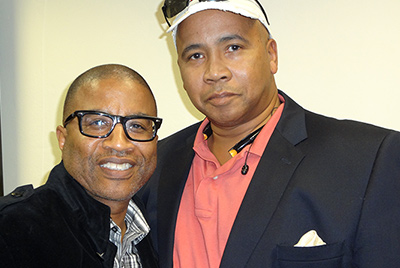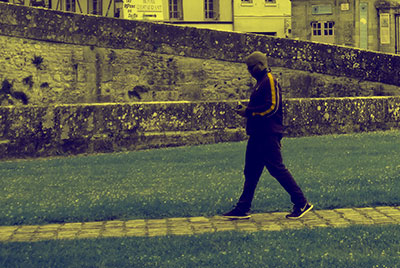Black Music Month, Day #26
Two ideas bubble to the surface in all accounts of bebop musician Bud Powell (1924-1966). 
The first thread is his supreme musical prowess. The reputation that he built rests chiefly on his ability solo in the idiom, although he also composed memorable original works known for their delicate intricacy, idiosyncratic style, and, at times, stark emotional clarity. He was a virtuoso titan, a preternatural improviser and a hero to jazz pianists active during the mid-1940s and beyond. Powell’s lightening-fast technique was matched only by his powers of invention. While the inner man will probably remain shrouded in mystery (Powell left no memoir), his musical contributions remains with us. Most jazz pianists who have “taken a few choruses” are indebted to Powell. He played a major role in the creation of a modern jazz piano style that integrated earlier ones of Earl Hines, Billy Kyle, Teddy Wilson, and Art Tatum. He was very respected in his prime, a known quantity among beboppers.
 In stark contrast, the other thread is the challenge presented by his physical and mental health. By most accounts, Powell’s personality and emotional state were notoriously unpredictable. And his difficulties were widely known to magnify with his abuse (self-medication?) of drugs and alcohol. Beginning in 1945 and up to his death, he spent intermittent periods in mental institutions in which some of his “treatments” included electroshock therapy. When one experiences the beauty and edgy reason of his music it is difficult to imagine how such a logical musical mind could have endured such abuse. His abundance of musical gifts seemed at odds with the world around him, or at least, his view of it.
In stark contrast, the other thread is the challenge presented by his physical and mental health. By most accounts, Powell’s personality and emotional state were notoriously unpredictable. And his difficulties were widely known to magnify with his abuse (self-medication?) of drugs and alcohol. Beginning in 1945 and up to his death, he spent intermittent periods in mental institutions in which some of his “treatments” included electroshock therapy. When one experiences the beauty and edgy reason of his music it is difficult to imagine how such a logical musical mind could have endured such abuse. His abundance of musical gifts seemed at odds with the world around him, or at least, his view of it.
Powell was not alone. Other black artists ranging from painters Beauford Delaney and Jacob Lawrence to pianists Nina Simone and Thelonious Monk also struggled with mental health issues. I’ve struggled over years with what to do with Powell’s ailments in the context of my cultural study of his impact. How would Powell’s mental health factor into the the orderliness of his compositions and the power of his solos; how would it help me understand his place in jazz history? Monk biographer Robin D.G. Kelley has, as always, provided a pathway to the answer. Powell and Monk shared common personal struggles as each bore the burden of staggering mental and physical health issues. Kelley succinctly captures below the difficulties of maintaining a creative life and livelihood while trying to stabilize one’s equilibrium. The following statement, written about Monk, can surely apply to Powell as well although the latter’s was a more constant specter and played a larger and disruptive role in his life and in the lore surrounding him.
Various mental and physical ailments began to take an even greater toll, exacerbated by poor medical treatment, and unhealthy lifestyle, the daily stresses of a working jazz musician, and an unending financial and creative battle with the music industry. Some writers romanticize manic depression and/or schizophrenia as characteristics of creative genius, but the story of Monk’s physical and mental ailment is essentially a tragedy, a story of his slow decline and the pain it caused to those closest to him. Its manifestations were episodic, so he continued to function and make incredible music up until the day of his retirement in 1976. During these nearly twenty years, his ability to lead a band and to dig out fresh interpretations of composition he had been playing for decades, in spite of his illness and protracted struggle with the industry is astonishing.
Powell’s downturn in his young age surely caused sadness, fear, and disappointment for all those in his circles. Bright futures were not the typical lot of even the most earnest urban African American men at this time. But Powell had everything in place for a successful run in the music business. He was young, dashing, a brilliant technician, a fast learner, and was moving up the ranks as a professional musician on the New York scene. How far he had come at the times of his first institutionalizations—from being Thelonious Monk’s awkward and sometimes argumentative protégée to creating a standard for pianism in the new modern jazz style. He had developed a personal voice that highlighted the piano’s ability to range from streamlined and percussive to robust and orchestral. At the height of his creative virility, right at the edge of where potential would likely morph into international recognition, his once tolerated youthful belligerence began to be perceived by others as something else, as something unusual, as something unmanageable.
 For me, Kelley’s lesson is clear: put more onus on the harsh labor conditions of black musicians in Jim Crow-era America as a contributing factor; acknowledge mental challenges’ hardship on the personal/family space and not just in the business arena (i.e., this or that recording was bad because of his mental state); and concentrate on what the musician achieved in spite of the condition. After all, I believe those achievements are why we want to study the artist in the first place. Together with understanding the state of mid-20th century mental health care for black people, an important subject tackled by Jonathan M. Metzel in The Protest Psychosis, we can begin to better contextualize the psychological profiles of black artists like Powell.
For me, Kelley’s lesson is clear: put more onus on the harsh labor conditions of black musicians in Jim Crow-era America as a contributing factor; acknowledge mental challenges’ hardship on the personal/family space and not just in the business arena (i.e., this or that recording was bad because of his mental state); and concentrate on what the musician achieved in spite of the condition. After all, I believe those achievements are why we want to study the artist in the first place. Together with understanding the state of mid-20th century mental health care for black people, an important subject tackled by Jonathan M. Metzel in The Protest Psychosis, we can begin to better contextualize the psychological profiles of black artists like Powell.
Indeed, as E. Fuller Torrey writes: “the lives of those affected [by schizophrenia] are often chronicles of constricted experiences, muted emotions, missed opportunities, unfulfilled expectations…the fate of these patients has been worsened by our propensity to misunderstand.” Yet in the art object made we might also learn how artists like Powell constructed a world for himself to exist outside of these restrictions. Metzel’s book argues that mainstream culture has often viewed “threats to [the] racial order as a form of madness that is, still, overwhelmingly located in the minds and bodies of black men.” Might we find a similar musical critique in the work of someone like Powell?
Tags: Bud Powell, Mental Illness, Robin Kelley, Thelonious Monk


 Share On Facebook
Share On Facebook Tweet It
Tweet It

![[Philly EVENT] Screening of Amazing: A Film about Bud Powell](https://musiqology.com/blog/wp-content/uploads/2015/03/bud-powell-225x225.jpg)




